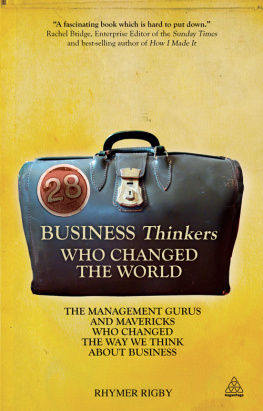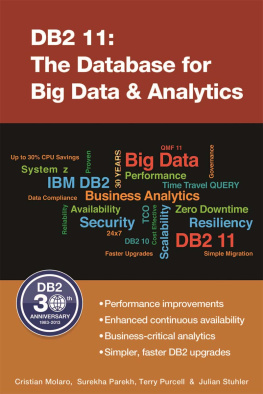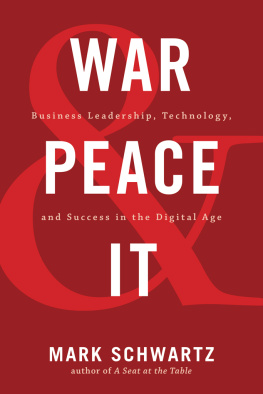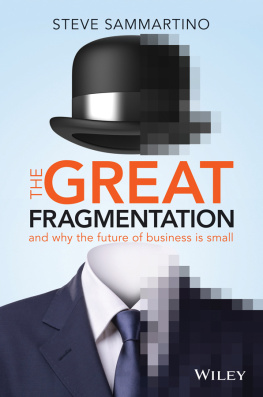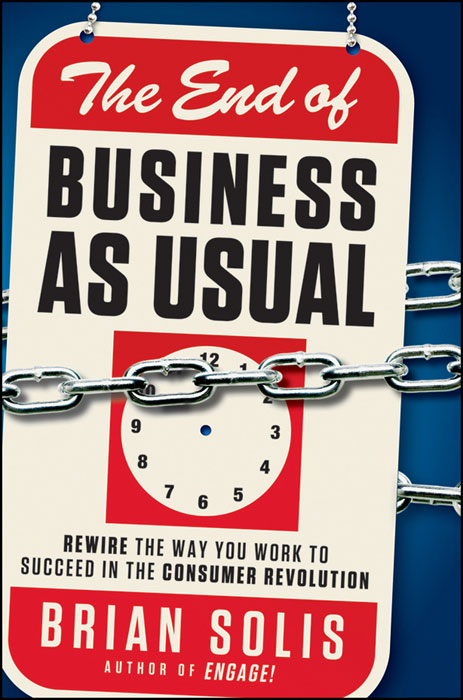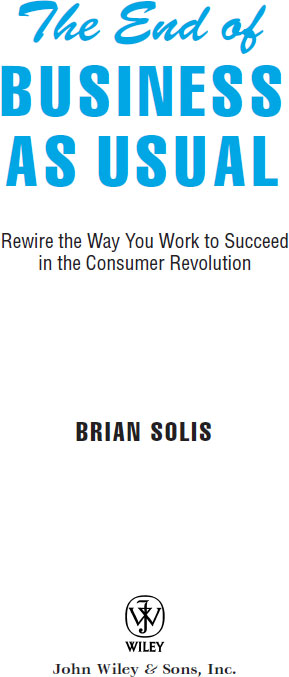Copyright 2012 by Brian Solis. All rights reserved.
Published by John Wiley & Sons, Inc., Hoboken, New Jersey.
Published simultaneously in Canada.
No part of this publication may be reproduced, stored in a retrieval system, or transmitted in any form or by any means, electronic, mechanical, photocopying, recording, scanning, or otherwise, except as permitted under Section 107 or 108 of the 1976 United States Copyright Act, without either the prior written permission of the Publisher, or authorization through payment of the appropriate per-copy fee to the Copyright Clearance Center, Inc., 222 Rosewood Drive, Danvers, MA 01923, (978) 750-8400, fax (978) 646-8600, or on the web at www.copyright.com . Requests to the Publisher for permission should be addressed to the Permissions Department, John Wiley & Sons, Inc., 111 River Street, Hoboken, NJ 07030, (201) 748-6011, fax (201) 748-6008, or online at http://www.wiley.com/go/permissions .
Limit of Liability/Disclaimer of Warranty: While the publisher and author have used their best efforts in preparing this book, they make no representations or warranties with respect to the accuracy or completeness of the contents of this book and specifically disclaim any implied warranties of merchantability or fitness for a particular purpose. No warranty may be created or extended by sales representatives or written sales materials. The advice and strategies contained herein may not be suitable for your situation. You should consult with a professional where appropriate. Neither the publisher nor author shall be liable for any loss of profit or any other commercial damages, including but not limited to special, incidental, consequential, or other damages.
For general information on our other products and services or for technical support, please contact our Customer Care Department within the United States at (800) 762-2974, outside the United States at (317) 572-3993 or fax (317) 572-4002.
Wiley publishes in a variety of print and electronic formats and by print-on-demand. Some material included with standard print versions of this book may not be included in e-books or in print-on-demand. If this book refers to media such as a CD or DVD that is not included in the version you purchased, you may download this material at http://booksupport.wiley.com . For more information about Wiley products, visit www.wiley.com .
Library of Congress Cataloging-in-Publication Data:
Solis, Brian.
The end of business as usual : rewire the way you work to succeed in the
consumer revolution / Brian Solis. 1st ed.
p. cm.
Includes index.
ISBN 978-1-118-07755-9 (acid-free paper); ISBN 978-1-118-17158-5 (ebk);
ISBN 978-1-118-17157-8 (ebk); ISBN 978-1-118-17156-1 (ebk)
1. Consumer behavior. 2. Customer relations. 3. Social media.
4. Internet marketingSocial aspects. 5. ManagementSocial aspects.
6. Information technologyManagement. I. Title.
HF5415.32.S599 2011
658.872dc23
2011029304
Foreword
Over the summer I invited a few friends and colleagues to my house for lunch. When they arrived, hugs and greetings were exchanged and my guests headed for the dining room while I finished up in the kitchen, mixing the homemade potato salad, and, well, let's say supervising the grilling out on the patio.
While I put the finishing touches on the plates I noticed something strange about the chatter coming from the other room there was none. They had either all been so bored they dozed off or they had quietly left and stuck me with way too much salmon and salad.
But, in fact, they were still there, seated at the table, one reading an iPad, two texting on iPhones, and one clicking away fervently on a BlackBerry.
I insisted that lunch would have to be a device-free meal.
You notice it at restaurants, at ball games, even at movies and plays. People can't seem to stop letting their fingers do the walking, as the Yellow Pages commercial goes.
Today the digital world pervades every aspect of our lives. I used to wonder what people did before call waiting. Now, phones are tiny laptops, and while you once had to be on a computer to engage online, you can now do it from anywhere, no wires required.
The world has changed at such warp speed in the past decade it's as if Henry Ford, the Wright Brothers, and Thomas Edison had gathered at some cosmic convention and unleashed all of their innovations the very next day.
When I was asked to record a video for YouTube's fifth anniversary, I have to admit my first thought was, Wow, it's only been five years. After all, it wasn't that long ago that Bryant Gumbel and I had trouble explaining what the Internet was to Today show viewers. (And yes, I now know what the @ symbol means!)
The advent of social media has also rapidly changed the way we do business, particularly in my field. Viewers and consumers of news now interact with information in a much more dynamic way. They aren't just watching a broadcast passively. They tweet about it, post and discuss stories on Facebook, and, yes, send their comments instantly.
I met Brian Solis last year when he interviewed me for his webshow. I have to admit I was a bit intimidated because I consider myself a tech novice, an information hunter trying to find her way through the World Wide Woods that the Web can be. I had begun to engage in social media just two years earlier. First a YouTube channel, then Facebook, Twitter, and webshows of my own. But I certainly didnt, and still dont, consider myself an expert.
When I relayed that thought to Brian, he told me that he sometimes feels that way, too. That this change is happening so fast it is impossible to be an expert. We're all just students, literally learning something new every day.
That instantly put me at ease. Some tech experts can be smug know-it-alls, as if only they have the keys to the digital castle. But Brian, in a world of aggregators and content providers, is a navigator, a sort of digital Sherpa who understands we all must climb at our own pace but we do need to climb.
While I am fully engaged in the digital world, I do see pros and cons to our connectivity. As I have said before, the good thing about social media is it gives everyone a voice. The bad thing is it gives everyone a voice.
Other books have been written about negativity, anonymity, and brutal bombs of bad information that can spread like wildfire online.
But I have also seen the very positive impact our global connectedness has brought to journalism and to information sharing in general.
As a news anchor I could tell my audience about unrest in Iran surrounding the 2009 elections there, but nothing could bring home the struggle in the streets like a cell phone video of Neda Agha-Soltan. This beautiful and brave young Iranian woman was killed at a protest and a citizen journalist captured the horrific images and was able to share them with the world. The anonymous cell phone video went on to win the prestigious George Polk Award.
After the fall of Hosni Mubarak's regime in Egypt I interviewed Wael Ghonim, the patriot and revolutionary whose Facebook page began a youth movement against oppression in his nation. He told me that Facebook didn't make people brave, it just helped that bravery spread and grow. But it was technology that spread the word and gave voices to millions of disenfranchised Egyptians demanding change.
These are dramatic and powerful examples, but there are many others, perhaps more mundane, that highlight the power of information campaigns in the digital world.




